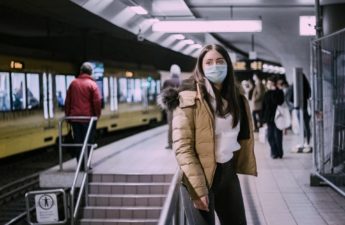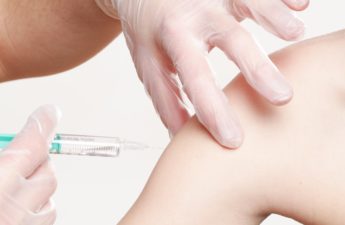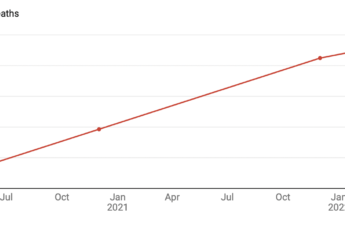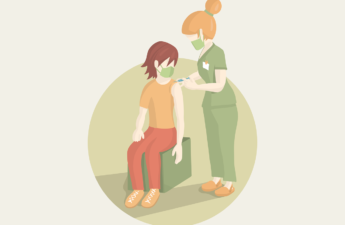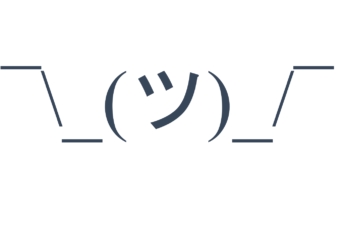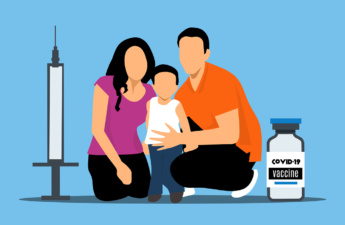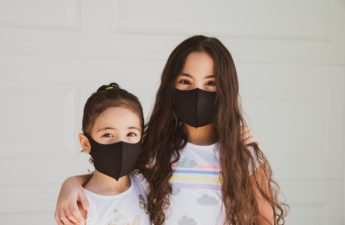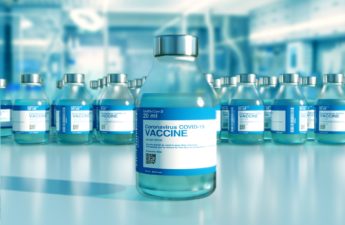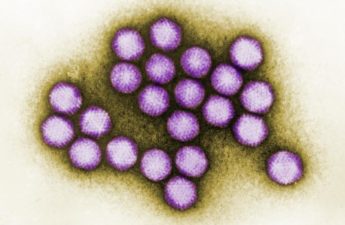Category: COVID
How Misinformation About COVID Vaccines and Pregnancy Took Root Early On and Why It Won’t Go Away
Before coronavirus vaccines were even released, a disinformation campaign used a moment of national and personal vulnerability to prey on those who were pregnant or who planned to become pregnant.
The Time Has Come for DIY Mandates on Covid
Let’s face it: Covid is with us for the foreseeable future, and we can only speculate about other variants that might blindside us down the road or how many times we can chance reinfection without risking lasting damage to our health. Given this inconvenient truth, now is an excellent time to adopt everyday habits that reduce our risk of contagion — and not just from covid.
How effective are face masks?
In one study, those who always wore any type of mask or respirator in indoor public spaces were 56% less likely to test positive than those that never wore one. There was an 83% reduction in the odds of getting a positive test in those who wore a respirator, compared with a 66% reduction in those wearing surgical masks. Those wearing a cloth mask had lower odds of having a positive PCR test result than those wearing no mask, but the difference was not statistically significant.
Boost Now or Wait? Many Wonder How Best to Ride Out Covid’s Next Wave
Consistent messaging has been complicated by the different views of leading vaccine scientists. Although physicians like del Rio and Dr. Peter Hotez of Baylor College of Medicine see the value in getting a second booster, Dr. Paul Offit, a member of the FDA’s vaccine advisory committee, is skeptical it’s needed by anyone but seniors and people who are immunocompromised.
1 in 8 U.S. deaths from 2020 to 2021 came from COVID-19 – leaving millions of relatives reeling from distinctly difficult grief
More than 9 million Americans have lost a close relative to COVID-19, a dramatic rise in bereavement that makes them vulnerable to mental distress.
Should you get a COVID-19 booster shot now or wait until fall? Two immunologists help weigh the options
Clinical studies show that mixing and matching booster vaccines can lead to a more robust immune response.
Will the US Overcome Its Covid Complacency Even as the Threat Returns?
Two years ago, pre-vaccine, the images of dying people on ventilators saying goodbye on iPads, doctors in hazmat suits, and portable morgues in hospital parking lots briefly engaged everyone in the need for public health resources, and Congress stepped up. Now, the public has moved on. But the threat hasn’t gone away. And there will be a price to pay.
The latest on COVID-19 boosters
Boosters are important for keeping our communities safe, especially as COVID-19 cases increase across Washington. But it’s not always easy to track when you or a loved one is eligible for a first, or a second, booster. Here’s what you need to know.
WHEN CAN BABIES AND YOUNG CHILDREN FINALLY GET THE COVID VACCINE?
Public Health – Seattle & King County wants to ensure that families across the county can protect their children under 5 with COVID-19 vaccine soon after authorization for emergency use occurs.
Herd immunity was sold as the path out of the pandemic. Here’s why we’re not talking about it any more
As the pandemic progressed, herd immunity via vaccination moved further and further out of reach. In fact, based on what we know about currently circulating viral variants, today, herd immunity via vaccination is mathematically impossible.
Got Long Covid? Medical Expertise Is Vital, and Seniors Should Prepare to Go Slow
Older adults who have survived covid-19 are more likely than younger patients to have persistent symptoms such as fatigue, breathlessness, muscle aches, heart palpitations, headaches, joint pain, and difficulty with memory and concentration — problems linked to long covid. But it can be hard to distinguish lingering aftereffects of covid from conditions common in older adults such as lung disease, heart disease, and mild cognitive impairment.
How important is the COVID-19 booster shot for 5-to-11-year-olds? 5 questions answered
Naturally, many parents are wondering about the importance and safety of a booster shot for their school-age children. Debbie-Ann Shirley, a pediatric infectious disease specialist at the University of Virginia, answers some common questions about COVID-19 and booster shots in kids that she hears in her practice and explains the research behind why booster shots are recommended for children ages 5 to 11.
WITH COVID RATES HIGH, WHAT PARENTS NEED TO KNOW ABOUT MASKING AND TESTING
The risk of exposure to COVID-19 is higher than a month ago, both within schools and in the community. That’s why Public Health has been recommending wearing masks in indoor public settings and other prevention measures, particularly since we reached the Medium Community Level.
WHAT’S THE DEAL WITH BOOSTERS (AND WHY IT’S A GOOD TIME FOR A BOOST)
Boosters keep your body’s protection against COVID-19 strong for longer, guarding against getting very sick, going to the hospital, or death.
Hepatitis outbreak in children: explainer on adenovirus type 41, the possible culprit
One suspect is infection by an adenovirus. Adenoviruses are a large group of viruses that can infect a wide range of animals as well as humans. They got their name from the tissue they were initially isolated from: the adenoids (tonsils).

